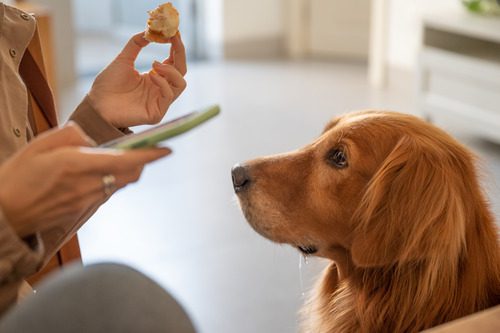How to Tell if My Dog is Drooling Too Much
Dogs drool, and it’s part of their nature. But when pet owners notice their dog drooling too much, it can raise questions about whether something more serious is going on. Occasional drool during mealtime, play, or excitement is normal, but excessive drooling can sometimes point to other concerns. If you’re wondering whether your dog is drooling too much, this guide will walk you through the reasons why it happens, how to recognize when it might be excessive, and what to do next. For personalized guidance, you can always call Best Friends Veterinary Care in Nesconset, NY, at 631-656-5990 or book an appointment online.

Why Do Dogs Drool?
Drooling, also known as ptyalism, is your dog’s natural way of managing saliva. Saliva keeps the mouth moist, helps with chewing and digestion, and protects oral tissues. Certain dog breeds produce more saliva than others, which makes them more prone to drooling.
Breeds Known for Heavy Drooling
Some breeds are genetically predisposed to drool more due to the shape of their mouths and lips:
- Saint Bernards
- Bloodhounds
- Mastiffs
- Great Danes
- Newfoundlands
For these dogs, drooling is simply a part of daily life. But for dogs not usually prone to drooling, a sudden increase might catch your attention.
Normal vs. Excessive Dog Drooling
Understanding what’s normal for your dog is the first step in noticing when something changes.
Situations Where Drooling Is Normal
Dogs can drool more in certain everyday situations, including:
- Anticipation of food
- Excitement or play
- Heat and exercise
- Motion sickness in the car
In these cases, the drooling often stops once the trigger passes.
When Drooling Might Be Excessive
Dog drooling too much becomes a concern when:
- It starts suddenly and doesn’t stop
- It happens without an obvious trigger
- It’s accompanied by other signs like pawing at the mouth, bad breath, or difficulty eating
If you see these changes, it may be time to take a closer look.
Common Causes of Excessive Dog Drooling
There are several reasons why your dog may be drooling too much. Some are minor and temporary, while others may require professional attention.
Oral and Dental Concerns
Dogs with dental disease, infections, or mouth injuries may drool more than usual. Excess saliva can be a way of coping with irritation or discomfort.
Foreign Objects
Sometimes dogs get small objects, like sticks or toys, stuck in their mouths. This can trigger drooling as the body’s natural response.
Heat and Stress
Overheating and stress are common triggers for excessive drooling. Dogs cool themselves by panting, which sometimes leads to more saliva production.
Stomach Upset
Nausea from car rides, diet changes, or other factors can cause your dog to drool excessively.
How to Spot the Signs of Trouble
Since drooling can be normal in some contexts, knowing when to act is important. Look for patterns and additional behaviors.
Signs That Deserve Attention
- Drooling paired with vomiting or gagging
- Reluctance to eat or difficulty chewing
- Swelling around the mouth or face
- Strong or unusual odor from the mouth
- Sudden changes in drooling levels for your dog
Tracking when the drooling occurs can help your veterinarian understand what’s going on.
How Breed and Lifestyle Influence Drooling
Not every dog drools the same way. Breed, age, and daily habits all play a role in how much saliva you’ll see.
Breed Differences
As mentioned earlier, certain breeds naturally drool more. Knowing what’s expected for your dog’s breed helps you distinguish between normal and excessive drooling.
Lifestyle Factors
Dogs who love car rides, get anxious during storms, or spend lots of time outdoors in the heat may drool more often. Observing these patterns gives you insight into your dog’s specific triggers.
What to Do if You Notice Excessive Drooling
If you think your dog is drooling too much, the best step is to stay observant and seek professional advice. Avoid making assumptions at home. Since drooling can be linked to many causes, your veterinarian can help determine what’s going on. At Best Friends Veterinary Care in Nesconset, NY, our team takes the time to understand your dog’s behavior, medical history, and lifestyle to provide the right care. If you notice drooling paired with other unusual signs, it’s always safest to schedule a visit. Call us at 631-656-5990 or book an appointment online today.
About Us
Best Friends Veterinary Care warmly welcomes you to our animal hospital in Nesconset, where we provide exceptional care for your pet and outstanding service for you and your pet. With longer appointment times, our team of experienced veterinarians offer their undivided attention and top-notch treatment for your pet during each visit to our hospital.
